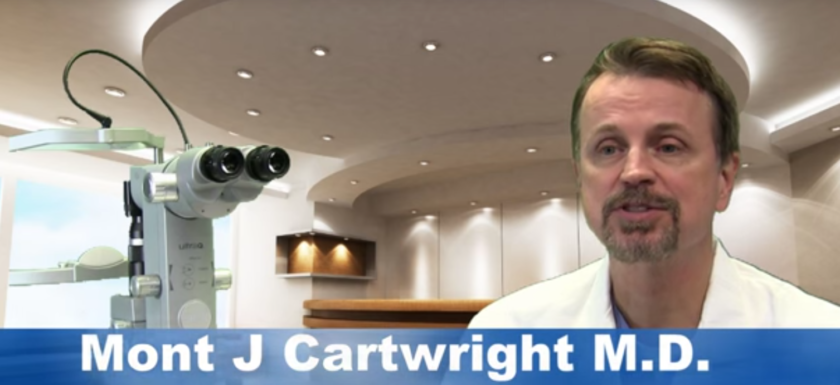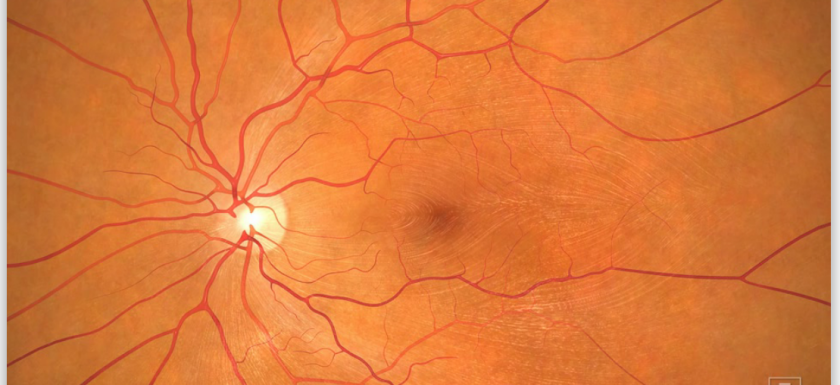
State of the Art Floater Treatment
In this video Dr. Cartwright discusses the use of the new ELLEX YAG laser for the treatment of floaters.

In this video Dr. Cartwright discusses the use of the new ELLEX YAG laser for the treatment of floaters.

There are three stages of Macular Degeneration: 1. Early AMD – Most people do not experience vision loss in the early stage of AMD. Early AMD is diagnosed by the presence of medium-sized DRUSEN. 2. Intermediate AMD – At this stage, there may be some vision loss, but there still may not be noticeable symptoms. A complete eye exam with specific tests will look for larger drusen and/or pigment changesRead More →
The staff are very helpful and willing to do anything to help you when you need to see the doctor without an appointment. – Mar 3, 2016
Vitreous floaters (eye floaters, vitreous opacities) are little “cobwebs” or specks that float about in your field of vision. They are tiny, cloudy clumps of cells that appear in the otherwise clear fluid (vitreous) that fills the back three-fourths of the eye. People see eye floaters as small specks, cobwebs, or clouds moving in their field of vision. They move as your eyes move and seem to dart away whenRead More →
Macular degeneration is not a straightforward hereditary condition. The risk of developing AMD is increased if it occurs in family members. The best way to determine if one is at risk of developing vision loss from macular degeneration at this time is to have someone who is an expert at evaluating the retina perform an exam. They will determine if there are signs of an early stage of macular degeneration,Read More →
Lots of people have cataracts that do not cause blurred vision or interfere with the activities of daily life. These individuals should not undergo unnecessary surgery to remove their cataracts. However, if an individual has blurred vision that makes it difficult to do the things that he or she wants and needs to do, it is time to consider cataract surgery. View Video
Ectropion is the weakening of the connective tissue of the eyelid (usually the lower eyelid), which causes the lid to turn out. This causes the inner surface to be exposed. In severe ectropion, the entire length of the eyelid is turned out. In less severe cases of ectropion, only one segment of the eyelid sags away from the eye. Ectropion is caused by: •Most commonly caused by the aging processRead More →
Cataracts may remain small and may not be noticeable. They often do not seriously affect vision. And many cataracts do not need to be removed. However, some cataracts grow larger or denser over time, causing severe vision changes. Medical Eye Associates offers comprehensive Cataract Services. What are Cataracts? A cataract is a loss of transparency, or clouding, of the normally clear lens of the eye. As one ages, chemical changesRead More →
Glaucoma is the second leading cause of vision loss. Sometimes called the silent thief of sight, glaucoma can damage your vision so gradually you don’t notice any loss of vision until the disease is at an advanced stage. Because most people with glaucoma have no early symptoms or pain from the increased intraocular pressure, it is important to have regular routine eye exams so that glaucoma can be diagnosed andRead More →
This video is a heartwarming story about a pediatric ocuplastic surgery that Dr. Mont Cartwright, M.D. of Medical Eye Associates and Doctors Surgery Center performed on a local Central Florida child that suffered from a congenital birth defect. It is very important to carefully select the professionals to treat your most prized possessions, your children. Selecting the right Pediatric Oculofacial Plastic Surgeon is an important job. Please read Choosing anRead More →